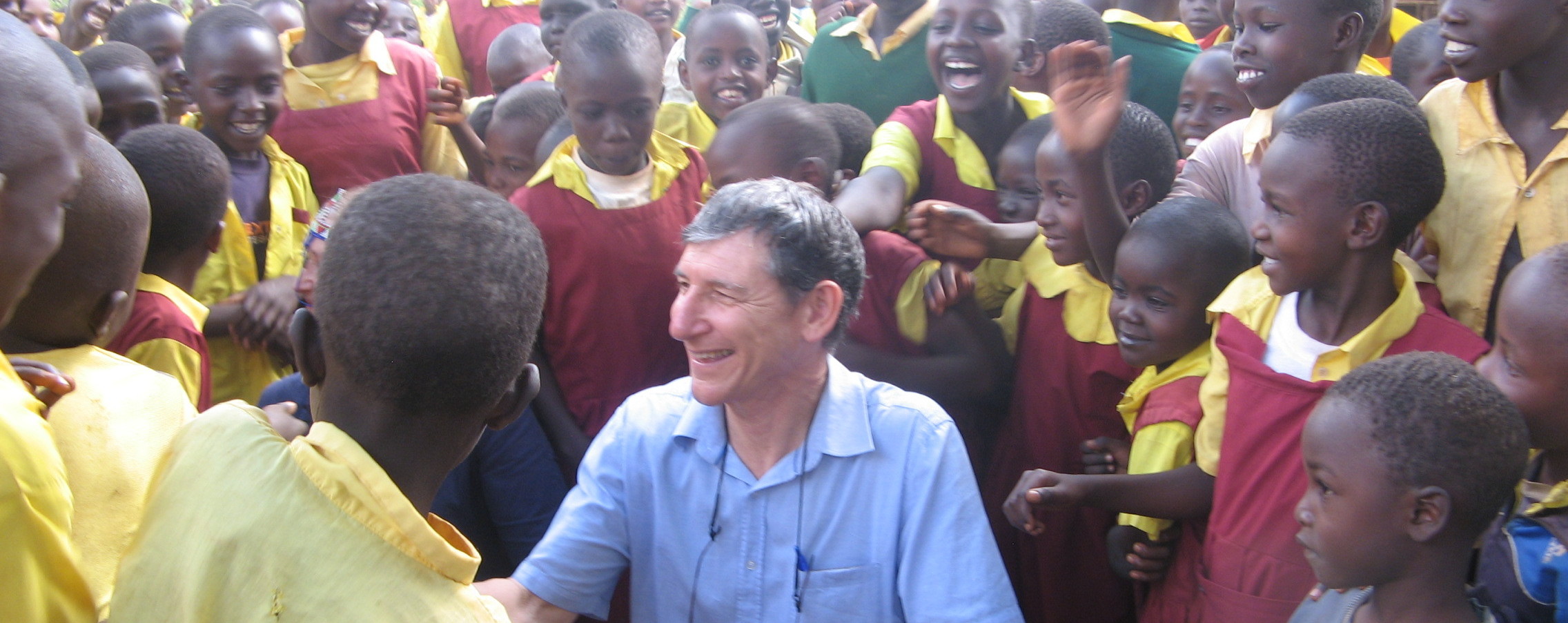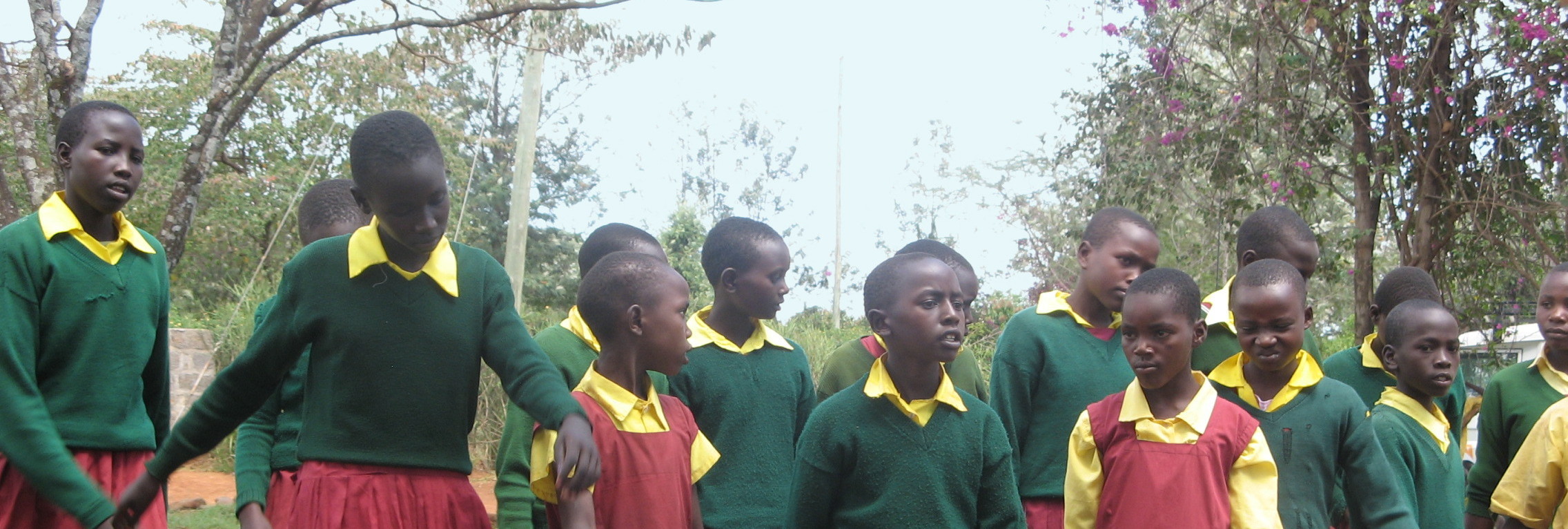
Children become FMNR ambassadors in Kenya
June 24, 2014
The Kenya FMNR project is working in 24 schools in Wema Area Development Program. On 4/6/2014 we visited Emarangishu Primary Schoolwhere some 200 students have become enthusiastic ambassadors of FMNR and they are actively practicing FMNR on the school property and teaching their parents at home. The school has linked FMNR to the various subjects the children study – especially, but not only science.
Josiah Kwagma, State Agent, explained that prior to their school becoming an FMNR learning centre and introducing it onto their own school grounds, children were spending over half an hour per day looking for fuel wood for the school kitchen. “Since introducing FMNR, we have moved our society in a new direction” said Josiah.
Mr. Kigen, the school’s headmaster, said he used to be ashamed of the untidy appearance of the school grounds. “They contained an impenetrable, unproductive tangle of weeds useless for livestock and wildlife alike. Now that we have cleaned it up through FMNR I am proud. The grass has come back and we are planning to get a cow for the school. We even pick mushrooms – not previously available. The land was not productive at all before.”
Ester Chemjor, teacher and FMNR Facilitator, told us that the soil used to be unproductive. “There was nothing here before”, Ester said “but now we even pick mushrooms and the children are learning how to look for and utilize mushrooms as well as about all the benefits from, and necessity of having trees in the landscapes.”
The students performed a number of skits and songs extolling the virtues of FMNR and we were very moved by their presentations and poems.

THE NATURAL TREE
I am a natural tree,
I grow naturally from existing stump roots and self-grown seeds,
When I am pruned;
I will allow grass to grow under me,
I will provide firewood and charcoal,
I will give fresh air,
I will give shade,
I will reduce soil erosion,
I will improve food security,
I will enhance child well-being.
(Emarangishu Primary School)
IF ALL TREES DIE
If all trees die, if all trees go,
The land will be brown and bare.
Soil erosion will be more and more.
And no plant will grow.
If all trees die, if all trees go,
Birds, bees and beetles will daily wonder,
Where did our beautiful flowers go?
Where shall we raise our young ones?
If all trees die, if all trees go,
Where shall we get our food?
We shall get weaker and weaker,
Till we can work no more
If all trees die, if all trees go,
How unclean the air will be!
No beauty to cheers us up,
No shade, no shelter, what a shame!
If all tees die, if all trees go,
What will hold up the swing?
When the children want to fly,
And make their hearts sing.
(Solai Lakeview Academy, Early Childood Development)

Tony Rinaudo is Natural Resources Advisor in the Food Security and Climate Change Team at World Vision Australia. Tony pioneered FMNR in Niger during the 1980s and his tecniques have been adopted by farmers all over the world. He is currently visiting the countries involved in the FMNR for East Africa project
